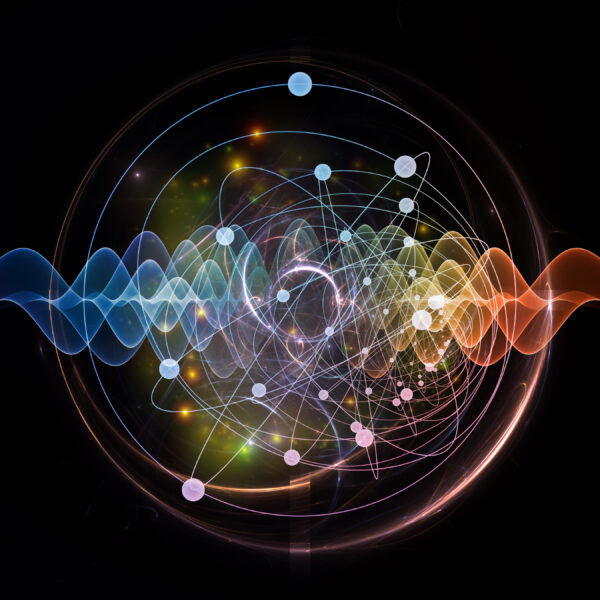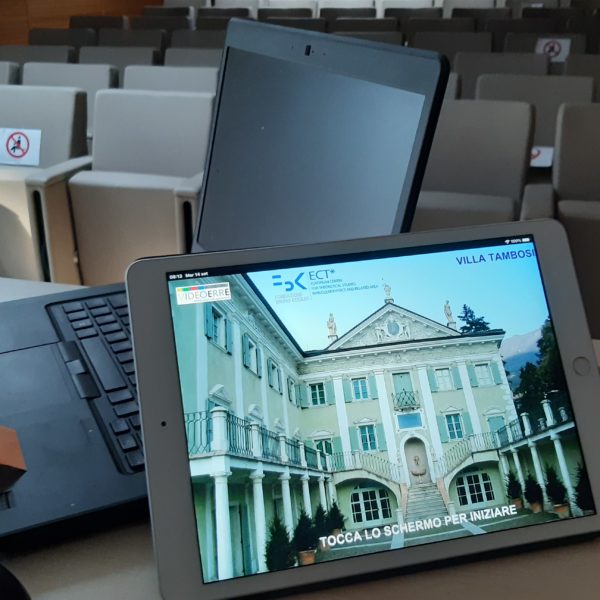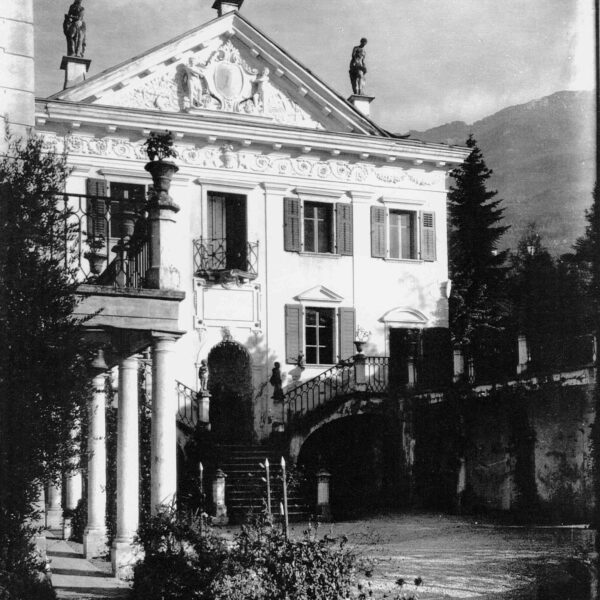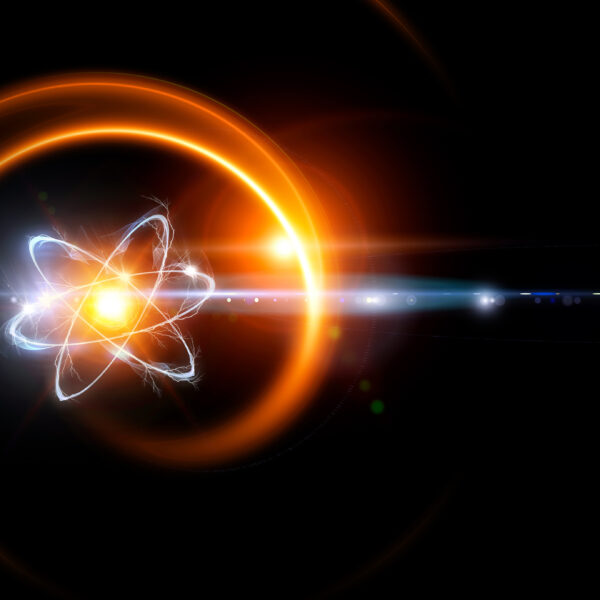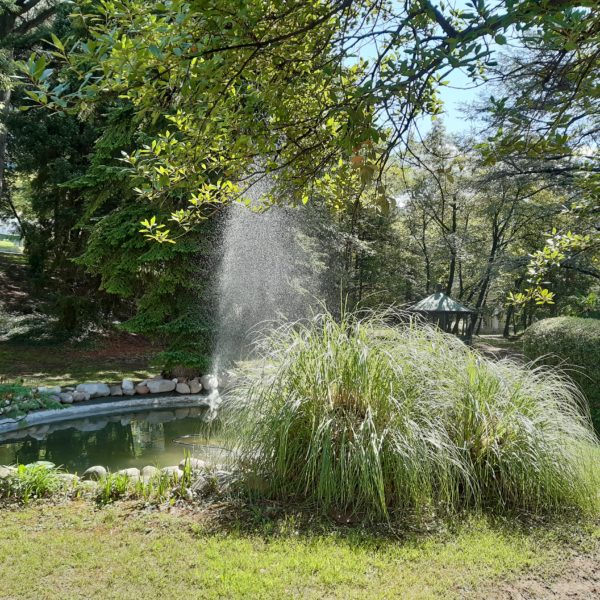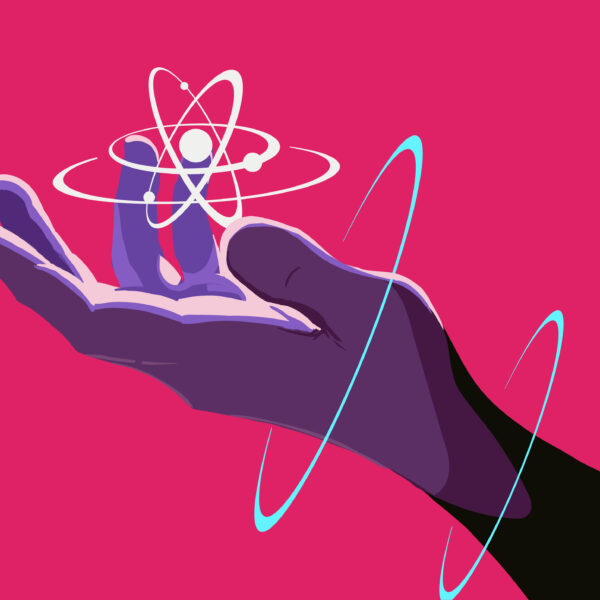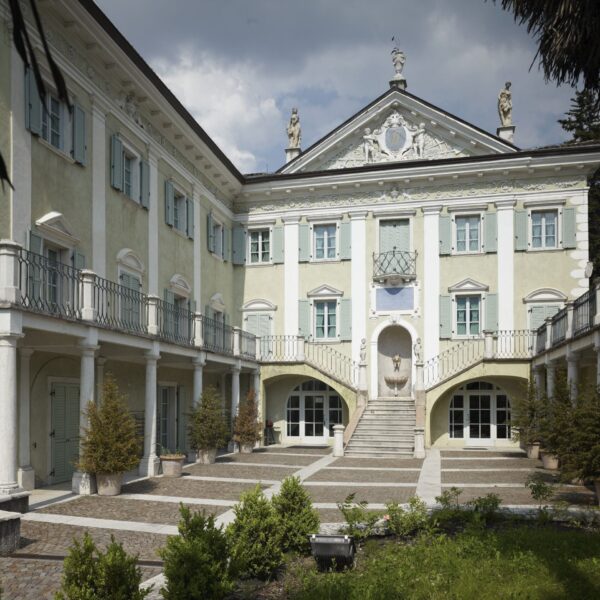Workshops General Archive
-
This workshop gathers specialists from theoretical and experimental condensed matter and atomic physics as well as nuclear and gravitational physics to discuss in an interdisciplinary way the concept of Bose-Einstein condensation and its realizations in different areas of the physical sciences. It is the 2024 edition (coinciding with the centenary of the pioneering first work by Satyendra Bose) of a series of key events that started in Levico (near Trento) back in 1993 and were instrumental to the impressive developments that research on BECs displayed in the last three decades. As compared to other events focussing on specific systems, the distinctive feature of our workshop will be its commitment to have a broad spectrum of participants and topics, with the goal of fostering and nurturing existing interdisciplinary connections and facilitating new, unexpected ones. In particular, themes will include condensation in gases of ultracold atoms, quasi-particles (magnons, excitons, polaritons) in solids, light; emergence of universality and criticality in the non-equilibrium statistical mechanics of condensates; condensates in gravitation and cosmology. The structure of the workshop will be designed with a specific attention to stimulate unexpected long-range connections between distinct fields.More info
-
Accelerator neutrino oscillation experiments have the potential to revolutionize our understanding of fundamental physics, including: characterizing charge-parity violation in the lepton sector; determining the neutrino mass ordering; and exploring physics beyond three-flavor neutrino mixing. However, the next generation of long baseline experiments (DUNE and Hyper-K) require precise control over the systematic uncertainties in their analyses. The most challenging uncertainties come from the modeling of neutrino-nucleus interactions and are related to subtle details of the pertinent nuclear physics, such as those of the target nucleus ground state, and the transport of hadrons through the nuclear medium. Confronting such uncertainties requires significantly improved theoretical models as well as targeted measurements with the current generation of experiments to inform model development. This workshop will bring together neutrino oscillation experimentalists, nuclear theorists and those measuring neutrino-nucleus interactions, and will provide a unique opportunity for cross-field discourse.More info
-
Kaonic, antiprotonic, muonic and pionic atoms, as well as the so-called “onia”, are exotic systems where one or more sub-atomic particles are replaced by a different particle of identical charge. In particular kaons, pions or antiprotons replacing one of the orbital electrons are used to form hadronic atoms, while a muon forms a leptonic exotic atom. Finally, in a “hydrogen-like” configuration, a bound pair of a particle and its antiparticle or of two leptons represents an exotic system called onium; some of these states, like muonium, positronium and pionium, have been already experimentally observed but others may exist; their observation could enable important tests for both QCD and QED. All these exotic atoms represent unique tools for testing the foundation of electromagnetic, strong and even gravitational interactions. It is thus the right time for discussing synergy and exchanging information between the physics communities involved in exotic atoms studies.More info
-
The recent measurement of the spin polarization of particles produced in nuclear collisions has opened a new frontier for the study of strong-interaction matter under extreme conditions. Future experimental efforts will measure spin observables with unprecedented precision. On the theoretical front, there is rapid progress in discovering new effects that polarize spin. However, the understanding of these new effects as well as their implementation in dynamical frameworks such as quantum hydrodynamics and kinetic theory are still under development. The goal of the workshop is to gather experts from both theory and experiment to determine the state-of-the-art knowledge in the field, to exchange ideas and methods, and to initiate new developments.More info
-
Since the seminal paper titled “Remarks on the chiral phase transition in chromodynamics” by Pisarski and Wilczek in 1984, tremendous progress has been made in our understanding of the phase structure of strong-interaction matter, e.g. it has been established from lattice-regularized Quantum Chromodynamics (QCD) that strong-interaction matter undergoes a rapid crossover transition from the hadronic phase to the quark-gluon plasma phase. Despite this progress key questions related to the fate of symmetry breaking patterns under extreme conditions of high temperature and large baryon number density as well as other control parameters, and particularly the influence of the axial anomaly on QCD phase transitions still remain elusive. These key questions are not only of theoretical interest but also closely related to the on-going ultra-relativistic heavy-ion collisions experiments. This workshop aims at bringing together experts in the field as well as young practitioners to discuss the latest developments on these studies.More info
-
We take stock of what we have learned in the 25 years since a watershed ECT* workshop, when the now-popular effective field theory methods where first scrutinized by the nuclear-interaction community. Have potentials inspired by Chiral EFT fully replaced more phenomenological approaches? What are their phenomenological limitations? How can they be improved? Have they achieved the goal of providing a model-independent and systematic description of nuclei with controlled uncertainties? Do we understand the dynamical implications of QCD?More info
-
After a successful edition of our workshop “Towards improved Hadron Femtography with Hard Exclusive Reactions”, which was organized in July 2022 and August 2023 at Virginia Tech (Blacksburg, VA, USA), we decided to make this event annual. The goal of the workshop is to bring people together for discussing novel reactions and techniques related to Hadron’s imaging with functions such as Generalized Parton Distributions, and Hard Exclusive reactions. The special thematic for our 2024 edition will be having one day dedicated to lattice QCD and novel computing techniques for theory and analysis. The workshop will be organized in summer 2024 in Trento, by the same organizers, plus two specialists of the “special thematic”. This serie of workshop will be organized around the same thematic every 2 years in the US and every 2 years in Europe (annual event).More info
-
We want to bring together the communities of the LHC and the EIC, with the focus on quarkonium studies and their sensitivity to hadron structure and saturation. This includes shedding light on an enhanced understanding of quarkonium production mechanisms. Reactions involving quarkonia can provide us with a novel channel to access (gluon) spin-dependent and multi-dimensional observables. At the same time, they offer us additional constraints on the collinear nucleon and nuclear parton distributions. With the EIC at present in the R&D phase, this is a most favorable time to gather both the theory and experimental communities of the LHC and EIC.More info
-
Laser-driven ion and electron accelerations open a unique opportunity to probe/trigger new phenomena in nuclear physics. The intensive beams produced by high power lasers can generate neutrons/gamma rays which can be orders of magnitude denser both in time and space than classical accelerators. Thus, rare physical events—which were far from reach before—can be studied for the first time. This workshop will bring together interdisciplinary researchers, including the broadly defined nuclear and laser-plasma communities, to share existing ideas and discuss key issues. Topics include (but are not limited to): laser-driven particle accelerations, laser-driven neutron/gamma-ray sources, multi-photon pumping of nuclear isomer states, neutron captures related to nucleosynthesis, gamma-ray lasers and strong QED effects. Progress in these topics will broaden our current theoretical understanding of nature and bring tremendous practical applications. We aim to promote free discussions and initiate collaborative groups across disciplines to explore and tackle this new regime.More info
-
Direct nuclear reactions, processes such as nucleon transfer, knockout, anti-nucleon capture have been extensively exploited by experiments to learn about the structure of exotic isotopes far away from stability, to infer properties of the nuclear forces, to describe nucleosynthesis and to learn about the nuclear equation of state. In this respect, nucleon-nucleus optical potentials are of great importance since they are the fundamental building blocks needed to predict reaction observables to address such a wide range of Nuclear Physics facets. Traditional phenomenological optical potential parameterizations are fully reliable only in specific regions of the nuclear chart, near the stable isotopes they were fitted to. On the contrary, microscopically derived potentials can be systematically extended to isotopes far from stability that are the focus of modern experimental searches. This workshop will address the state-of-the-art of nuclear optical potentials to foster advances in their accuracy and handling of uncertainty propagation.More info
